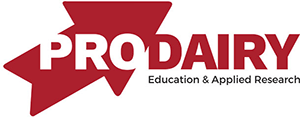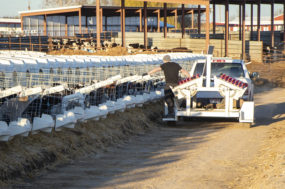Haydn Shaw, People Driven Results, shared strategies on how to bring five generations together at the Northeast Dairy Management Conference, including how to motivate and reduce generational turnover, and how to create a workplace that employees attract their friends to.
Shaw says to think in terms of life stages, and mentor and manage employees according to their life stage and preferences. “If we think it’s a generational characteristic we think we need to fix them,” Shaw said. “If we think it’s a life stage, all we have to do is understand it and shut up and listen.”
Successful human resource management requires responsiveness to the attitudes and preferences of today. “No longer say back in my day it was better,” Shaw said. “When you face a new reality you don’t like, you just have to set a timer for one minute and pout it out, and then figure it out.”
Improving communication across life stages improves efficiency and productivity, and contributes to a positive work environment. Respect that younger generations have different communication styles and neither is better. Older generations typically prefer eye to eye contact and younger generations typically prefer to text. Use the communication style preferred by who you are talking to.
“They can’t communicate your way,” Shaw said. “Can we just quit hating on people. If you’re going to supervise employees well you need to talk to them the way they like. Speak their language and get on with things. They don't mean it personally, so don't take it personally.”
Life stage and generational differences are reflected in loyalty, respect, and work ethic.
LOYALTY
“You will not be able to keep everyone happy in order to be able to stay. People leave today,” Shaw said. Older generations have loyalty and will stay at a job, often for life, but younger generations expect to change jobs and like variety. They wonder if they’re making a difference. Money matters, especially in jobs at the low end of the pay scale.
In general:
- Traditionalists view job hopping as the kiss of death for your career
- Boomers (born between 1946 and 1964) view leaving as necessary in some situations
- Gen X (born between 1965 and 1980) view leaving as necessary to get ahead
- Millennials/Gen Y (born between 1981 and 1996) believe there is nothing wrong with changing careers until you find the right one for you, but if you like your organization, why leave? Just do a different job.
- Gen Z (born between 1997 and 2012) will want to stay ten years – if there are raises and promotions
RESPECT
Of the five generations, millennials are the happiest life stage at work, but are always actively looking for the next opportunity. Even the ones who have a great environment will leave. Or, they wonder if they are making a difference, Shaw said. “What do you have to brag about? Dairy is a high quality, low-cost form of protein in a very hungry world,” he said. Titles matter and younger generations may want to move up before they have developed the expertise that will allow them to be successful.
In general:
- Traditionalists will figure out the hierarchy and find their place
- Boomers will work their way up to a position that gets respect
- Gen X will give respect if you prove you deserve it
- Millennials will give respect to those who “get it” and take them more seriously
- Gen Z will respect those in the hierarchy who care about them more than they do about winning
WORK ETHIC
Agriculture has a challenge because many job applicants didn’t grow up on farms and their spouses don’t have the same expectation for time away from work.
In general:
- Traditionalists work 9 to 5 and stay late with overtime
- Boomers work 8 to 6 and then take it home
- Gen X try to get it all done at work, and will take it home if they have to
- Millennials live in a 24/7 world, so leave at 5, and log on at night
- Gen Z know they will have to put their career first for the next 10 years
NEW LIFE STAGE
The new life stage, ages 18 to 28, known as “Emerging Adulthood” have a need to understand. They value freedom, choice, and change in careers, places, and dating. Average age for a first mortgage is now 27 to 28.
EMPLOYEE RETENTION TIPS
“In most cases younger generations require a warm and inviting environment to thrive, and knowing how to motivate this group without crushing their spirits can be challenging,” Shaw said. “Therefore they require more of an adaptive leadership style than the other generations.”
How to retain employees born after 1980:
- They will leave you
- Help some leave
- Classic respect will kill you
- Talk with them about leaving so you know if they will stay
- Fight boredom
How to create conversations:
1. Point forward, don’t demand
2. Give four times more positive than negative feedback
3. Assume you weren’t clear when you are frustrated
4. Ask them to explain their thought process
How to talk career path:
- Be direct with concerns, don’t wait for employees or HR to bring issues forward
- Clarify the ladder and the lattice parts and define next steps
- Let them think out loud with you
To maintain a cross-generational workforce, acknowledge great work if you want it to continue, and don’t let your old guard chase the 20 somethings away.
“People say to me, how do we attract the younger generation in this industry? You say, thank you for doing the hard things their friends won’t,” Shaw said. They are your future and may be the most productive generation yet.
Learn more about Haydn Shaw.
 |
This article appeared in PRO-DAIRY's The Manager in July 2022. To learn more about Cornell CALS PRO-DAIRY, visit PRO-DAIRY. |







